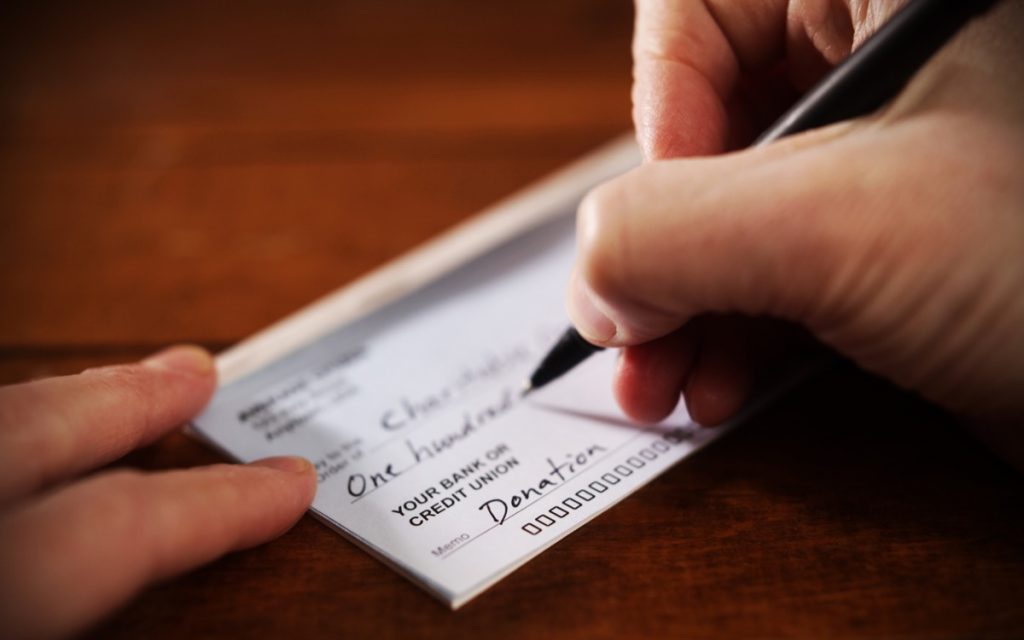The 10 Most Important Things to Include in Your Will, Experts Say

Most people spend each phase of their lives preparing for the next one, whether it’s starting a family, buying their first home, or eventually retiring. But for as crucial as each period may be—and as uncomfortable as it might be to admit—there’s really no such thing as making arrangements too early for when you’re gone. That’s why it’s important not to forget to include certain things in your will.
“The truth is that everyone 18 and older should have an estate plan,” says Kori Whisenant, Esq., owner of the Law Office of K. E. Whisenant. “Once we are legal adults, we are responsible for our own decisions surrounding healthcare and finances. If we cannot do it for ourselves, we need someone we trust in place to help us.”
Whether you’re just getting started on these critical preparations or you’re fine-tuning everything, there are a few crucial considerations you should keep in mind. Read on for the most important things to include in your will, according to experts.
RELATED: 10 Things You Should Stop Buying When You Retire, Finance Experts Say.
1
You need to address the possibility of incapacity.

Getting started on drawing up your last will and testament can be a difficult pill to swallow. According to a 2021 survey from Caring.com, nearly two-thirds of adults still don’t have one. But for as difficult or uncomfortable as it may be to accept the inevitable, experts say the process still needs to consider what might happen if you can’t advocate for yourself before passing on.
“Your plan is not complete unless you’ve also got some way of addressing incapacity,” says New York City Trusts and Estates attorney George Bischof. “The simple tool for that is power of attorney (POA), and the more robust tool for that would be a lifetime trust or a revocable trust,” adding that in the event you’re incapable of making decisions because of your mental state or disability, this acts as a fail-safe.
According to Jasmine Bloemhof, certified financial planner (CFP) at Forge Wealth Management, it’s crucial to remember that this is usually done while creating a will, but it is a separate document. “A POA allows you to assign someone to manage your everyday finances and investments,” she tells Best Life.
You can also assign a healthcare POA to make medical decisions for you when you are unable to do so for yourself. “It is important to let this person know what types of medical directives you want them to carry out and ask them if they are comfortable following them,” Bloemhof suggests.
2
Your will shouldn’t stand alone.

According to Bischof, a will should be “a part of a package of documents that address not only who gets what and who does what when you die, but also who can take care of business if you’re unable to care for yourself.” Designating someone in advance allows you to avoid having court involvement and lets you take control of your future.
“The law provides plenty of opportunities for you to select who will have authority and care for you if you become incapacitated,” he explains.
As you can imagine, picking the right person for such an important role can be difficult. “This is a lot of work and can be tedious at times,” says Bloemhof. “You want to make sure that whomever you assign is capable of acting on your behalf.”
This role should also not be a surprise to your chosen executor—and their backup—when you pass away. “You should discuss it with them prior to naming them in your will,” Bloemhof recommends.
RELATED: The 6 Best Small Towns to Retire In.
3
Make sure you have backups in your will.

Selecting loved ones you trust should be the case in all parts of the estate planning process. But it’s essential to make sure that you have backups in case someone can’t fulfill their role.
“Many people, as they turn 50 and see their thriving, productive children making their way in the world, miss the idea that their children may not be available or able to serve a role,” says Bischof.
Naming more than one backup or successor might not seem necessary, but you need to consider the possibility that a loved one might be incapacitated, pre-decease you, or be otherwise unavailable, he says.
4
Solidify plans for any minor children or dependents.

The thought of leaving loved ones behind is arguably what makes planning an estate so emotionally taxing. However, experts say laying out your wishes for them is one of the most crucial additions—and a perfect reason to get started on one much earlier in life.
“When drafting your will, one of the most important aspects to consider, especially for parents, is guardianship,” says Bischof. “It’s not just about naming someone: it’s about ensuring your children are cared for by someone you trust. Nominating a guardian in your will reflects your values and desires for your children’s future.”
Some might also find solace in knowing that this step can help secure the ideal outcome in the face of tragedy. “Addressing guardianship in your will isn’t just a legal requirement: it’s about shaping your children’s future according to your wishes,” says Dana A. Blue, Esq., founder of Dana Blue Law. “Without clear instructions, the courts may intervene, leading to outcomes that don’t align with your intentions. Discussing guardianship in your will empowers you to protect what matters most.”
It can also answer important questions beyond who will take care of children in the event you die or become incapacitated. “When should they receive their inheritance? Who do you want to invest the funds and oversee when the kids receive money, and how much, until it’s time for them to receive whatever is left? Selecting the right people and backups for these roles is critical to ensuring the emotional and financial well-being of minors,” says Mindy Stern, partner at Schwartz Sladkus Reich Greenberg Atlas LLP.
5
Keep your will up-to-date—and know where it is.

As your life changes, so do your needs. That’s why it’s important to make sure that your will is up-to-date.
“Check your wills from time to time and make sure that it reflects your current plan,” Bischof suggests.
He adds that you should also always know where an original copy of the will is since “it’s like a passport.” But while it’s important to keep track of, that doesn’t mean you have to hold onto it yourself.
“It can be with your attorney or some other secure place,” says Bischof. “But you want to know where it is.”
6
Avoid unnecessary battles in probate court.

After you pass away, your will is submitted to probate court. And experts warn that while this isn’t always a terrible situation, it can be in certain circumstances if you don’t prepare.
“If your family does not get along, probate court provides an expensive venue for them to fight over your estate,” says David Peterson, special counsel in the trusts and estates group at Gravel & Shea law firm. “And if you own property in two states, then your will has to go through probate court in both states, at twice the cost.”
To avoid going through this lengthy process, Whisenant suggests setting up a revocable trust. “A successor trustee can assist the original grantor/owner even during life if the grantor/owner becomes mentally or physically incapacitated,” she says. “They receive full control over the assets without having to apply with the probate court, while a will only activates at your passing.”
7
Consider your non-human beneficiaries.

In many cases, our families include non-human members who will require extra attention after you’ve passed away.
“If you have beloved pets, consider specifying who will take care of them after you’re gone and allocate funds for their care in your will,” says Justin Stivers, financial advisor and founding attorney at Stivers Law. “This ensures that your furry friends are looked after according to your wishes.”
8
Don’t forget specific bequests.

An essential function of your will is to ensure that everything you own ends up in the right hands. That’s why it can pay to be specific with especially sentimental or irreplaceable items.
“Beyond distributing your assets among beneficiaries, consider including specific bequests for sentimental or valuable items, such as family heirlooms, jewelry, or artwork,” says Stivers. “This can help prevent disputes among heirs and ensure that cherished possessions go to the intended recipients.”
9
Remember your digital assets.

Technology has added a new layer to the types of property we pass along when we die. That includes pieces of your online presence, such as email, social media, online banking, and cryptocurrency holdings.
“Access to your digital life is invaluable now and after your passing,” Preston D. Cherry, PhD, personal finance expert and founder of Concurrent Financial Planning, tells Best Life. “Should you become incapacitated or when your handlers are carrying out your estate, they need to unlock your digital assets to perform your legacy and estate transfer orders.”
He suggests finding a bank encryption-level security service provider to create your digital vault with passwords, content, photos, social media, and personal finance accounts. “Then, make a digital will to supplement your last will for instructions on locating and accessing the master key. Having a digital will and vault helps save emotions, time, and money when executing your intended wishes,” he says.
10
Plan any charitable donations.

One of the most lasting impacts someone can have is helping to support a cause they believe in even after they’re gone. Often, that means bequeathing assets to a charity, foundation, or institute in your will.
“If you have philanthropic interests, consider including provisions for charitable donations in your will,” says Stivers. “You can specify particular charities or causes you wish to support, either with a fixed amount or a percentage of your estate.”
Best Life offers the most up-to-date financial information from top experts and the latest news and research, but our content is not meant to be a substitute for professional guidance. When it comes to the money you’re spending, saving, or investing, always consult your financial advisor directly.
This story has been updated to include additional entries, fact-checking, and copy-editing.